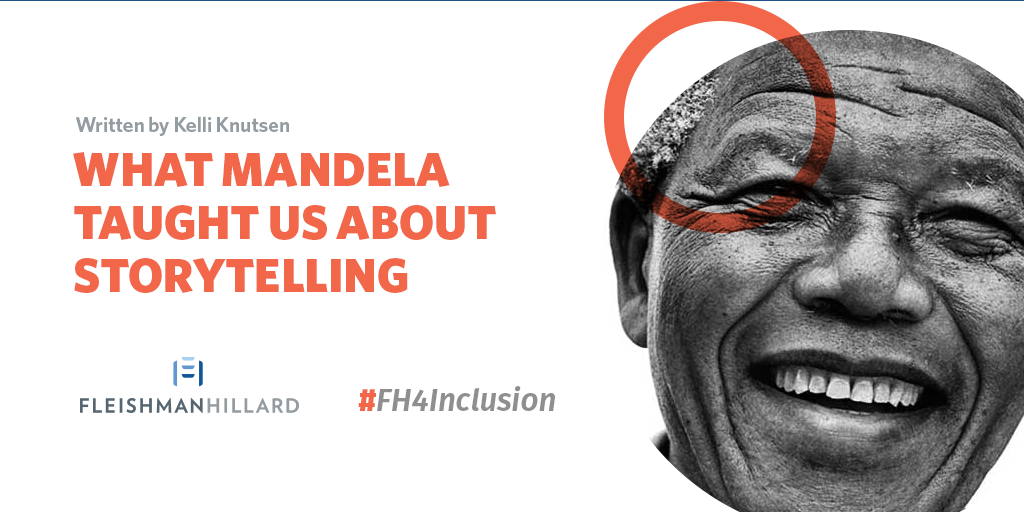What Mandela Taught us about Storytelling
As a communications agency, a part of brand communications is now about giving a voice to communities in need. Through the power of storytelling, we can contribute to solving broader societal issues and driving social inclusion. Storytelling gives us the ability to influence the way people understand the experiences of marginalised or underprivileged groups, and what needs to be done to help.
Nelson Mandela was a masterful story-teller. After being imprisoned for 27 years, Mandela came out to lead the people of South Africa to political liberation. He believed that the future belonged to the next generation. After retiring from public life, Mandela dedicated himself to children and used the power of storytelling to uplift the future generations of South Africa.
But what made Mandela a great storyteller?
Mandela was brought up in a village in the Transkei, listening to the elders of his tribe telling stories about the days when people lived harmoniously. Storytelling was engrained in him from a young age.
Mandela’s stories were humanised. He made himself, and the people he spoke about, relatable. He told the personal stories of the African children who were suffering and starving to death, demanding that government recognise them and provide financial aid. He used his own personal stories to illuminate the nuances of broad issues and gave seemingly intractable social problems a human face with which to engage. His personal narratives energised public narratives and shaped the way people thought, as well as their collective understanding. Consequently, his narratives impacted the way the people responded to issues around social inclusion.
Mandela’s stories were fit for purpose. He always knew the right thing to say, at the right time. A perfect example of Mandela’s understanding of this was when he greeted Queen Elizabeth II by her first name, and in return, the Queen called him, “Nelson”. Mandela knew that his warm friendship with the Queen allowed him to do so. For anyone else, it would have been frowned upon. From this we can draw the inference that understanding the situation and the right time to tell a story will have a greater impact.
Mandela always understood his audience. He knew exactly who he was speaking to and how to relay the right message in order to make an impact. By speaking to the right audience, the marginalisation of a group could be translated to the broader public to galvanise support. Communications professionals can lean on the science of data and analytics to create a story that will resonate with the desired audience.
Mandela would tell stories using anecdotes. He would always reference a real incident or person when he spoke, making first person accounts authentic, powerful and memorable. Mandela’s son passed away from HIV/AIDs. To rally public support and awareness for the cause, Mandela told the story about how his son’s death impacted him. Because his experience was first hand and the disease ‘touched’ him, the level of authenticity in his story was so extraordinary, that there was no way of escaping it.
It is Mandela’s heartfelt narrative that has captured the imagination of the world, and it is the timeless nature of his personal story that will forever live in our hearts.

Find Out More
-
The metaverse – Is it important for your business?
June 2, 2022
-
First Year At A Job And It Had To Be 2020!
June 11, 2021
-
PR trends accelerated by the COVID-19 pandemic
February 19, 2021
